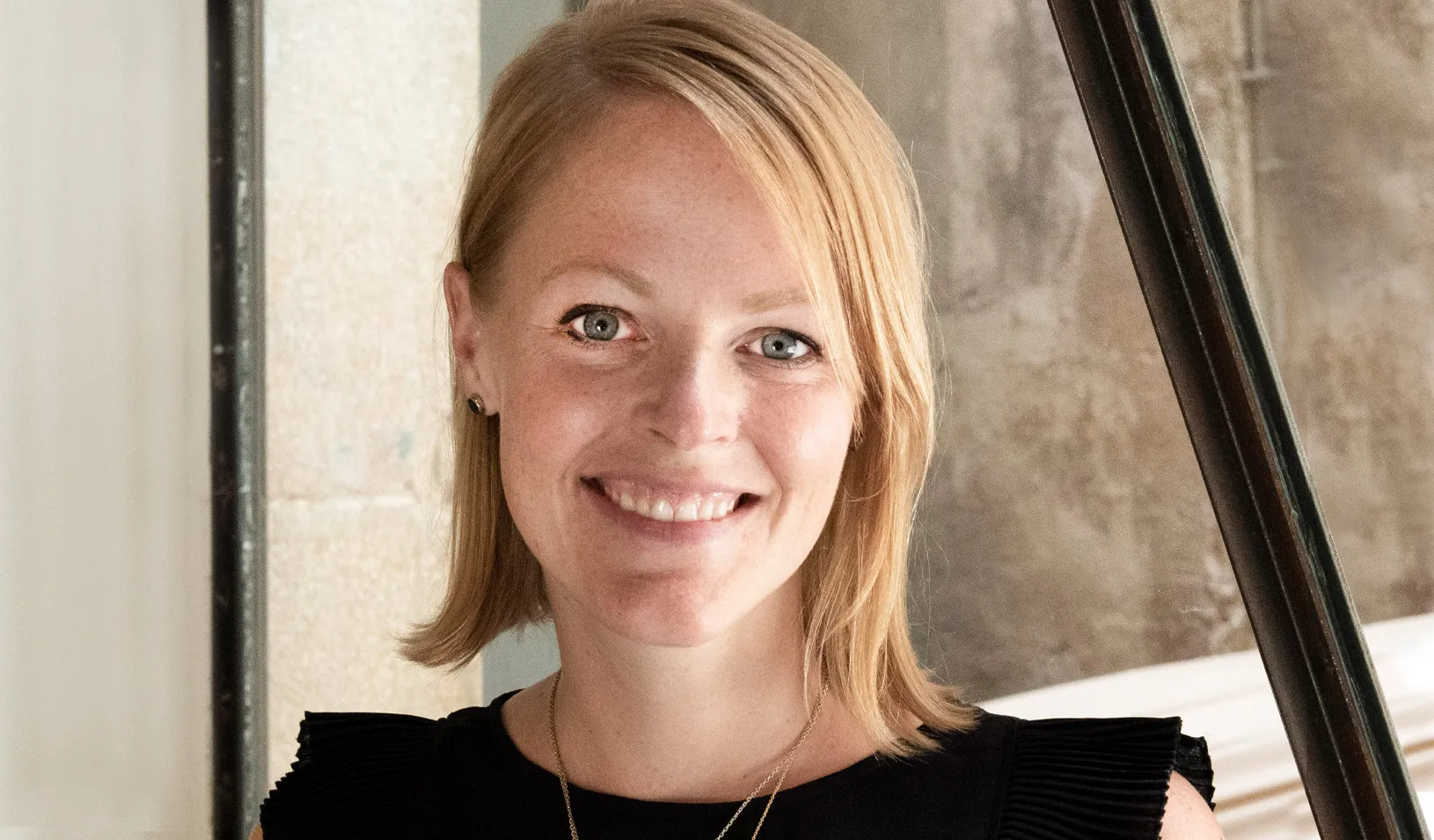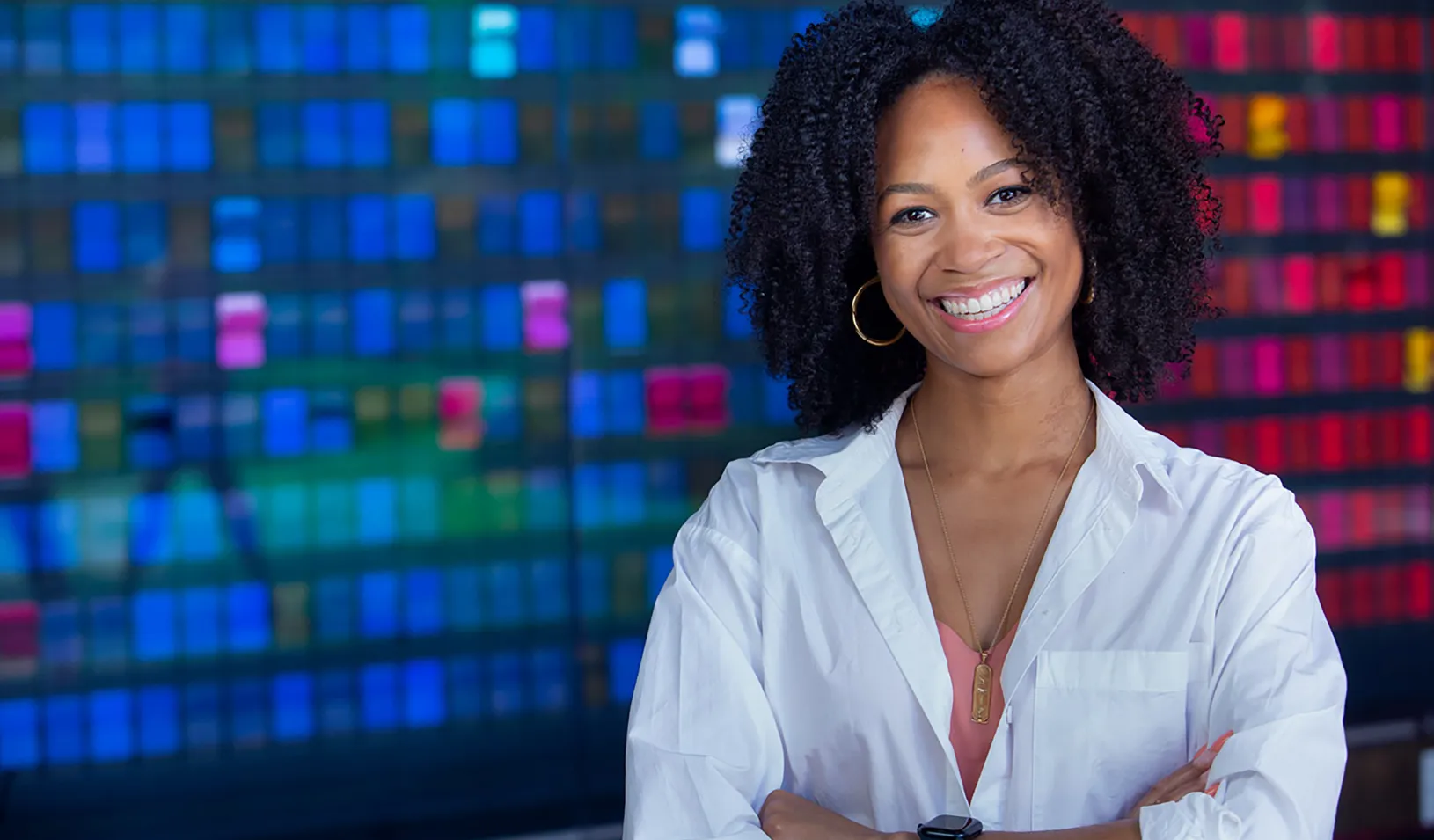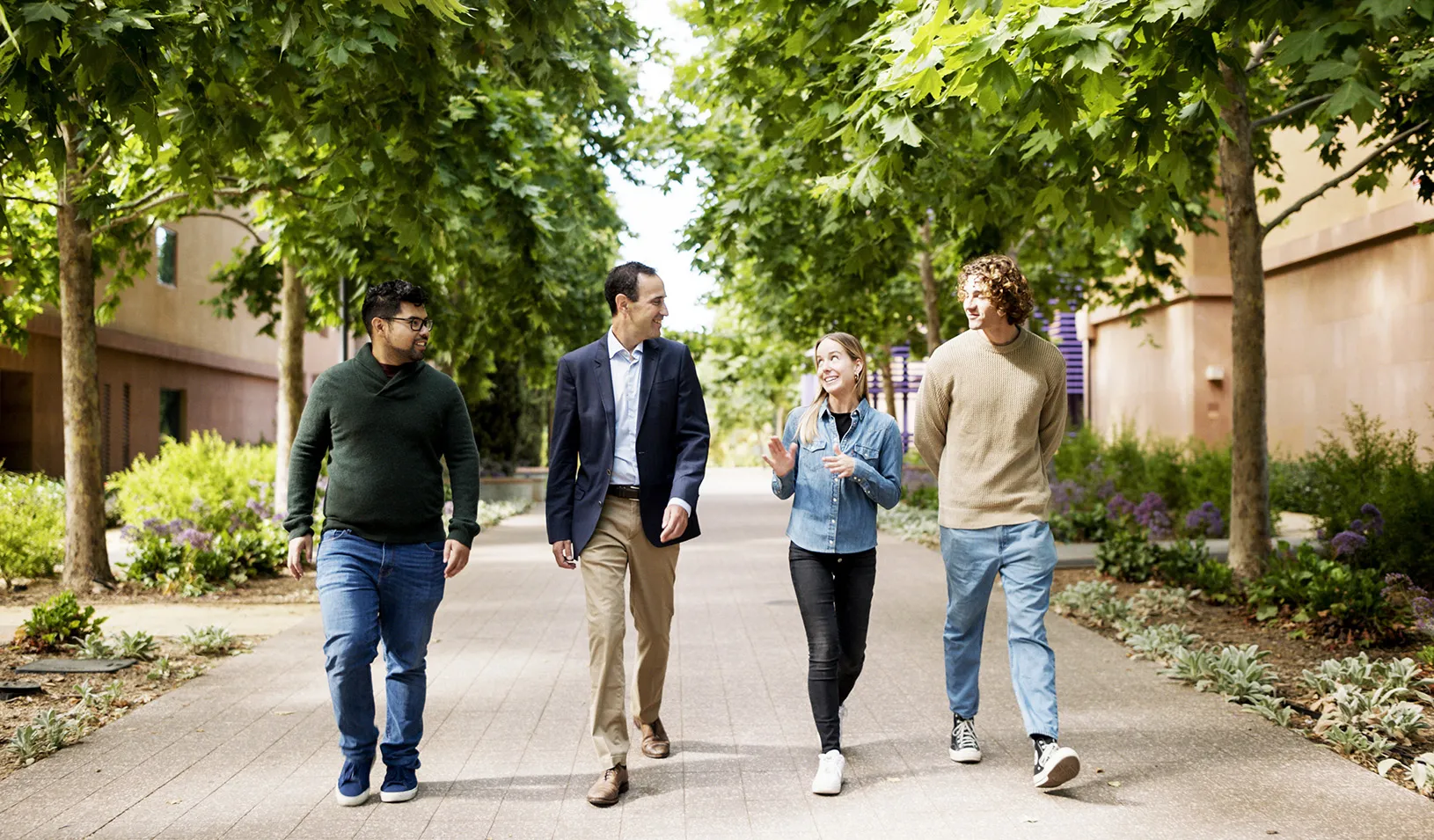New Faculty Bolster Stanford GSB Leadership in Management Education
A total of 10 new tenure-line faculty and 14 new lecturers will enrich the student experience.
September 25, 2013

Stanford Graduate School of Business welcomes new tenure-line faculty and lecturers. (Photo by Elena Zhukova)
Stanford Graduate School of Business has welcomed a new and diverse group of tenure-line faculty starting in the 2013-14 academic year, as well as new lecturers from industry and nonprofit sectors who will complement faculty instruction in the school’s MBA, PhD, Master of Science (MSx), and other business programs. All together, Stanford GSB has hired a total of 10 new faculty — across the disciplines of accounting, economics, finance, marketing, organizational behavior, and political economy — and 14 new lecturers.
“Each year we seek to enrich the student experience and academic rigor at Stanford GSB through the recruitment of talented faculty and lecturers,” said Garth Saloner, dean of Stanford Graduate School of Business. “It is through their expertise, combined with the strength of our existing faculty, that we can assure high-quality business education today and into the future.”
New Tenure-Line Faculty
The new faculty roster comprises two professors in the accounting field, three in economics, one in finance, one in marketing, two in organizational behavior, and one in political economy. They are:
Eduard deHaan, assistant professor of accounting, is interested in issues related to financial reporting and their implications for capital markets. His dissertation work investigates the effects of the recent credit crisis on the credibility of credit rating agencies.
Lisa De Simone, assistant professor of accounting, is interested in tax accounting research, particularly as it relates to multinational corporations, international taxation, income shifting, and accounting changes.
Rebecca Diamond, assistant professor of economics, is an applied microeconomist whose research combines methods from both labor economics and industrial organization to study the evolution of wage inequality in the United States. (Diamond will defer her appointment for one year to take a post-doctoral position at the Stanford Institute for Economic Policy Research.)
Sebastian Di Tella, assistant professor of economics, is a macroeconomist with interests including business cycles, the effect of financial crises on the macroeconomy, and optimal financial regulation.
Frederico Finan, associate professor of political economy, focuses on understanding how institutions affect development, illuminating the role of electoral accountability, corruption, government capabilities, education, and the provision of public goods.
Lindred Greer, assistant professor of organizational behavior, uses the methods of social psychology and organizational behavior to investigate the dynamics and performance of work teams.
Nir Halevy, assistant professor of organizational behavior, is a social psychologist who studies how people perceive, experience, and behave in conflict situations, and how the members of groups and teams coordinate their actions and cooperate to achieve shared goals.
Szu-chi Huang, assistant professor of marketing, is a behavioral marketing researcher whose work is grounded in social psychology and focuses on goal pursuit, such as earning points in a reward program.
Timothy McQuade, assistant professor of finance, is a financial economist whose research focuses on topics related to asset pricing, including the value premium (or why value stocks typically outperform growth stocks).
Christopher Tonetti, assistant professor of economics, is a macroeconomist who has developed a model of technology diffusion to deepen understanding of the gains from international trade across countries.
New Lecturers for 2013-14
For the 2013-14 academic year, the faculty is rounded out by a diverse group of new lecturers. This group adds to an already deep roster of established lecturers who help provide students with practical, real-world business perspectives. The new lecturers are:
Scott Brady(MS Sloan ’00) is cofounder and CEO of Slice, a venture-backed consumer internet software company based in Palo Alto. He will co-teach Entrepreneurship: Formation of New Ventures with Robert Siegel.
George Cogan (Stanford MBA ’89) is a partner at Bain & Company based in its Silicon Valley office, and the head of Bain’s Global Technology Practice. He will co-teach Strategic Thinking in Action — In Business and Beyond with Robert Burgelman.
Peter Francis (Stanford MBA ’87) is the managing director of investment company MIMCO LLC. He will teach The Yin and Yang of Family Business Transactions.
Saar Gur (GSB MBA ’03) is a general partner at Charles River Ventures and has been involved in more than 15 acquisitions in the past few years. Gur will co-teach The Startup Garage with Stefanos Zenios.
Mark Hartmann (MSc, LSE) is a partner of Helios Investment Partners, an Africa-focused private equity firm with approximately $1.7 billion under management. Hartmann will co-teach Private Equity in Frontier Markets: Creating a New Investible Asset Class with Paul Pfleiderer and Bill Meehan.
Laura Hattendorf (Stanford MBA ’93) directs the social investments of the Mulago Foundation, which is focused on finding the best solutions to the biggest problems in the poorest countries. She will co-teach Entrepreneurship: Formation of New Ventures with Russell Siegelman.
Dan Katzir (MBA, HBS) is a senior advisor to The Eli and Edythe Broad Foundation, which advances entrepreneurship for the public good in education, science, and the arts. Katzir will teach Leading the Change in Public Education.
Gloria Lee (Stanford MBA ’98, GSE MA ’98) is the chief operating officer at NewSchools Venture Fund, which supports education entrepreneurs. She will teach Entrepreneurial Approaches to Education Reform.
Fern Mandelbaum (Stanford MBA ’88) is a partner at Monitor Venture Partners, an early stage venture capital firm. She will teach Entrepreneurship from the Perspective of Women.
Alan Rappaport (Stanford MBA ’78) is an adjunct professor at the NYU Stern School of Business and vice chairman of Roundtable Investment Partners, LLC. He will co-teach Managing Wealth and Private Investing with George Parker.
Barry Rhein is CEO of Silicon Valley-based Barry Rhein & Associates, a sales training and consulting firm. Rhein will co-teach Fundamentals of Effective Selling with Jim Lattin.
Emma Stewart (PhD, Stanford) is head of sustainability solutions at Autodesk, where she leads efforts to make sustainable design easy, insightful, and cost-effective. She will teach “Intrapreneurship” for Sustainability: Driving Environmental Change from Within Corporations.
Mike Volpi (Stanford MBA ’94) is a partner at Index Ventures, where he focuses on investments in the enterprise software infrastructure and consumer internet sectors. He will co-teach Designing Empathy-Based Organizations with Sarah Soule.
Thomas Wurster (PhD, Yale) is senior partner and managing director at the Boston Consulting Group, where he is focused on media and technology. He will teach Insight to Outcome.
For media inquiries, visit the Newsroom.
Explore More
Erin Nixon Joins Stanford GSB as Assistant Dean of Admissions

Nia Rose Froome, MBA ’23: Making Local, Fresh Food Available for All

New Research Fund Promotes Responsible Leadership for the Next Century
